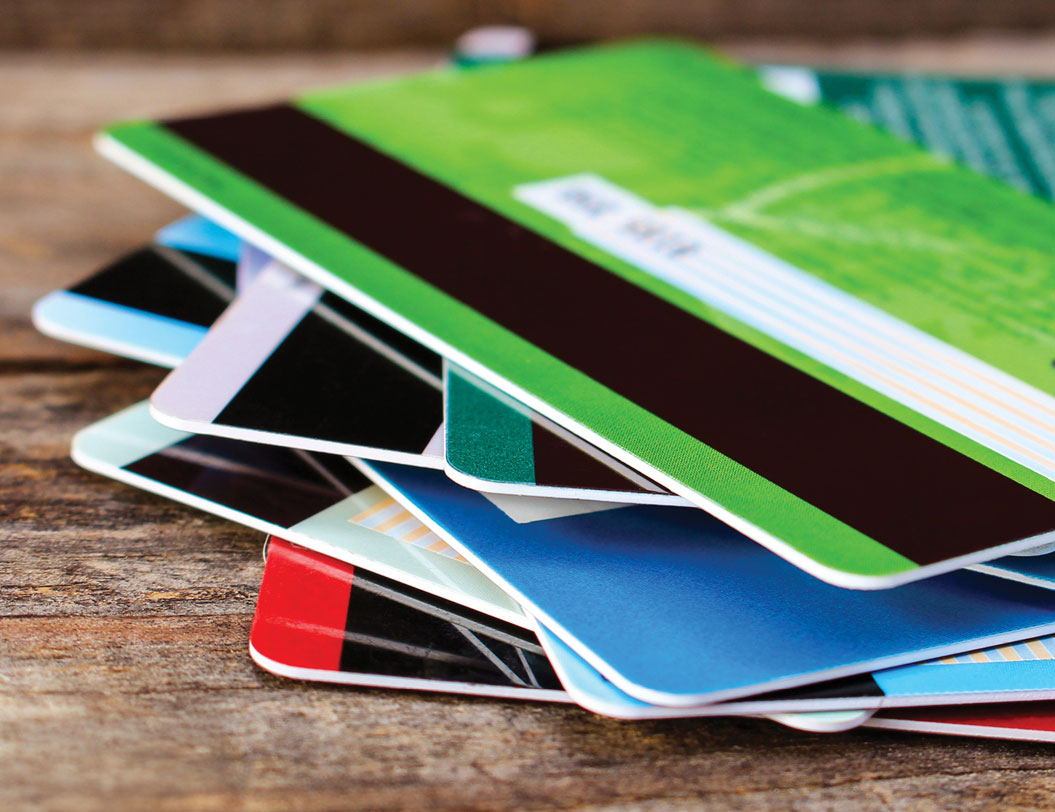How Many Credit Cards Should I Own?
Saving & Budgeting

Q: Should I have several open credit cards to build my credit? I worry about having too many, so just how many credit cards should I own?
A: This is an important question, and the answer may affect your overall financial health. However, there’s no magic number, because it depends on your personal circumstances and lifestyle. Let’s look at what owning various numbers of credit cards may look like.
Owning just one credit card
In some cases, it may be the right choice to have just one open credit card. For starters, tracking expenses is simple. Also, one card means just one due date, so you’re less likely to miss a payment and risk negative impacts on your credit score. Finally, a single credit card encourages you to manage credit responsibly.
Relying on just one card has some downsides, though. If your card is lost, stolen, or unexpectedly declined, you might have no other payment method. You could also miss out on specialized rewards that other cards offer.
Owning two or three credit cards
Many financial experts recommend having two or three credit cards. This allows you to take advantage of multiple rewards programs. Also, more credit cards mean a higher combined credit limit, allowing you to keep your utilization rate (overall and on each card) lower. Lastly, having two or three cards provides flexibility if one is lost, frozen or declined.
While two or three cards can offer more flexibility, they also require a higher level of payment tracking. Also, the temptation to overspend can increase when you have more credit.
Owning four or more credit cards
If you’re an experienced credit card user and can manage multiple accounts, having four or more credit cards might work out for you. Here are some reasons to consider this option:
- Specialized rewards and perks. Many credit cards are tailored to specific spending habits or lifestyles. Having several cards allows you to earn rewards or access benefits like airport lounge access, travel insurance, hotel discounts and more.
- Higher credit limits for lower utilization. With more cards, your total credit limit increases, which can potentially lower your credit utilization rate.
On the flip side, managing four or more cards can be challenging. You’ll have multiple due dates and reward programs to track, increasing the chance of missed payments or confusion.
What should I consider when deciding on the right numbers of credit cards?
Before applying for a new card, consider these factors to determine the best number for you:
- Your spending habits. Review your typical spending to identify areas where you could benefit from specific rewards.
- Your financial goals. Are you looking to build credit, save on interest or maximize rewards? Align your card choices with your financial goals.
- Your credit score and history. If you’re new to credit or rebuilding your score, start with one or two cards.
- Ability to manage payments. Be realistic about your ability to keep track of multiple due dates and balances.
- Keep your first credit card. A long-tenured credit card generally works out favorably for your credit score as long as the card is active and in good standing.
Keeping multiple cards under control
If you decide to manage multiple cards, here are a few tips to stay organized:
- Set up automatic payments for the minimum balance or full amount to avoid missed payments.
- Use a financial management app to link your accounts and monitor your spending in one place.
- Keep an eye on annual card fees to ensure the benefits outweigh the cost.
- Review your cards annually to make sure they still meet your needs.
Ultimately, there’s no “perfect” number of credit cards; the right number depends on your unique financial situation and goals. Use this guide to find the number of credit cards that’s right for you.
Related Resources
-
Woman using her phone and holding her credit card
Borrowing
Read MoreWhat is Credit Card Interest & How Does It Affect You?
Educate yourself on credit card interest and learn how it works before you apply for your next credit card. -
man holding phone with credit score displayed
Borrowing
Read MoreCredit Reports & FICO® Scores
Your credit reports can help you understand how paying off or assuming debt influences your FICO® Score, and what you can do to maintain a solid rating. -
Woman making a purchase with her debit card
Borrowing
Read MoreCredit vs. Debit Transactions
Credit transactions are also referred to as signature-based transactions to earn points. Debit transactions are also referred to as PIN-based. PIN-based, point-of-sale, ATM transactions, cash withdrawals, and checks do not earn points.


